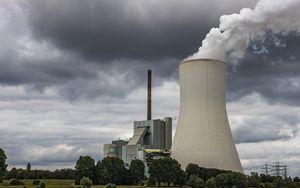(Finance) – Eni welcomed the announcement of the strategy “CCUS Vision” by the UK Department for Energy Security and Net Zero (DESNZ), which aims to strengthen the development of capture, use and storage of CO2 (CCUS) and to make it fully competitive on the market by 2035. The initiative also includes the initiation of the process of Track-1 expansion for an expansion of industrial emitters in HyNet consortium.
The British Government has allocated 20 billion pounds to support development on a commercial scale of the CCS industry with the aim of permanent storage 20-30 million tons of CO2 per year by 2030 and to create 50,000 new jobs.
In this context, Eni has established itself as a leading operator in the UK for the key role it plays in the transport and storage of CO2 and leader of the consortium driving the HyNet project.
Eni obtained one second licence for CO2 storage in the depleted gas field Hewett in the North Sea southern for the purpose of designing a second hub CCS in the country, Bacton Energy Hub, to decarbonise the Thames region. HyNet and Bacton CCS hubs, with a combined storage capacity of 500 million tons of CO2will allow thousands of jobs to be preserved and promoted at the same time investments for the development of new industrial supply chains. The two projects will thus allow the creation of further employment opportunities as well as achieving the UK’s decarbonisation targets.
There Road map outlined by the UK Government’s “CCUS Vision” aims to reduce costs for the industry, accelerating the decarbonization of hard-to-abate sector activities. In detail, as part of this strategy, the UK Government has announced HyNet’s Track-1 expansioninviting companies with CCUS projects to apply for membership by the 28th
March 2024. At the end of this process, it is expected to increase capacity cluster storage of 1.3 -1.5 million tonnes of CO2in addition to the approximately 3 million tonnes already ensured by the 5 emitters selected in Track-1 last March 2023. This expansion will allow the storage capacity expected from Phase 1 of HyNet to be reached by 2030.
Thanks also to the agreement on the Heads of Terms reached in October 2023 with the United Kingdom Government, HyNet will be one of the first low-carbon clusters in the world with a storage capacity of approx 4.5 million tons of CO2 per year in the first phase with a progressive increase up to approximately 10 million tonnes.
